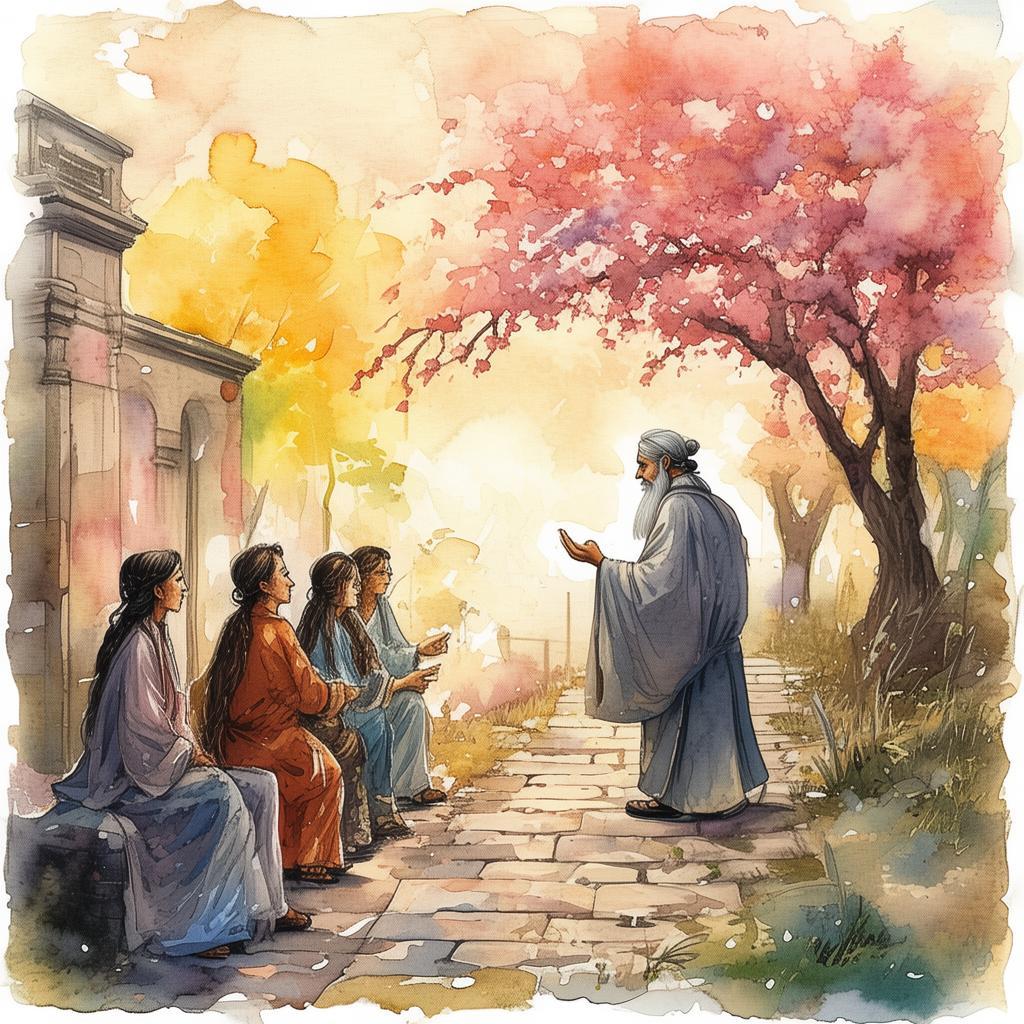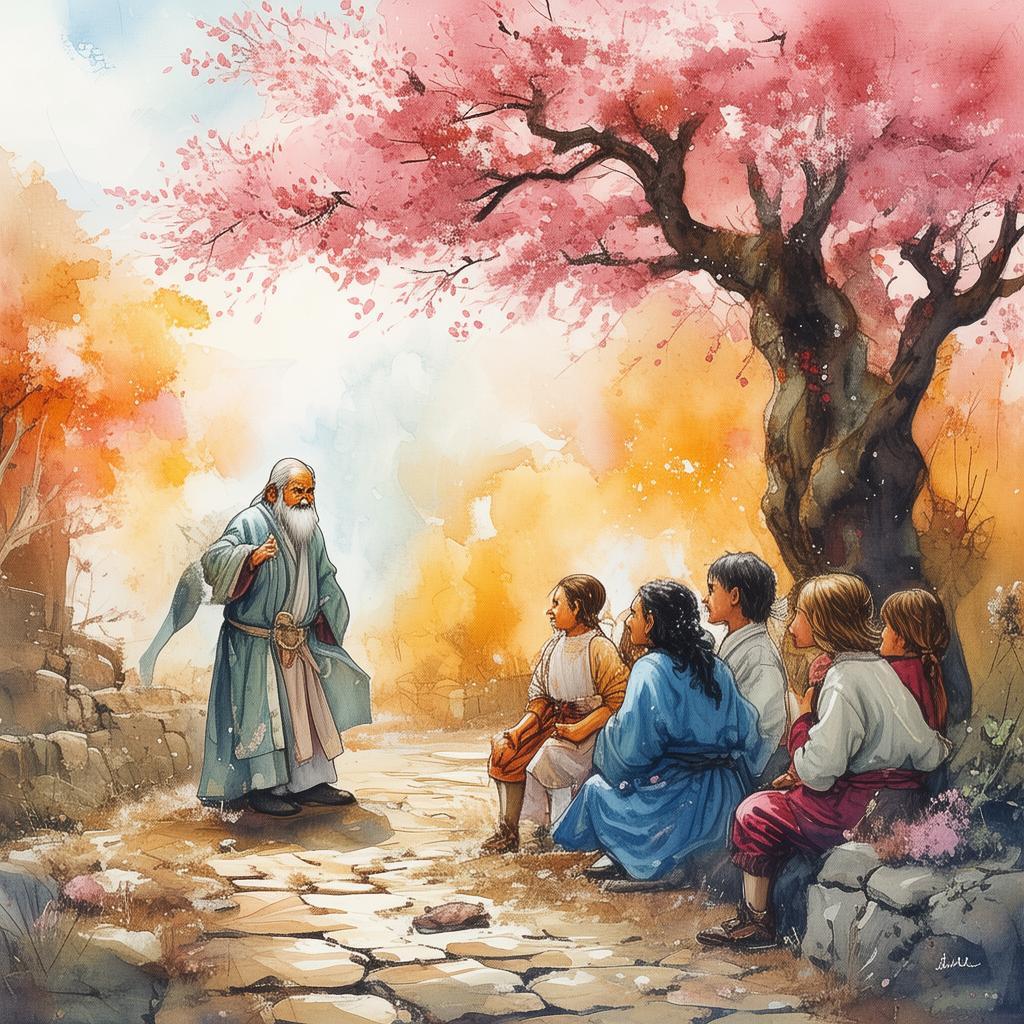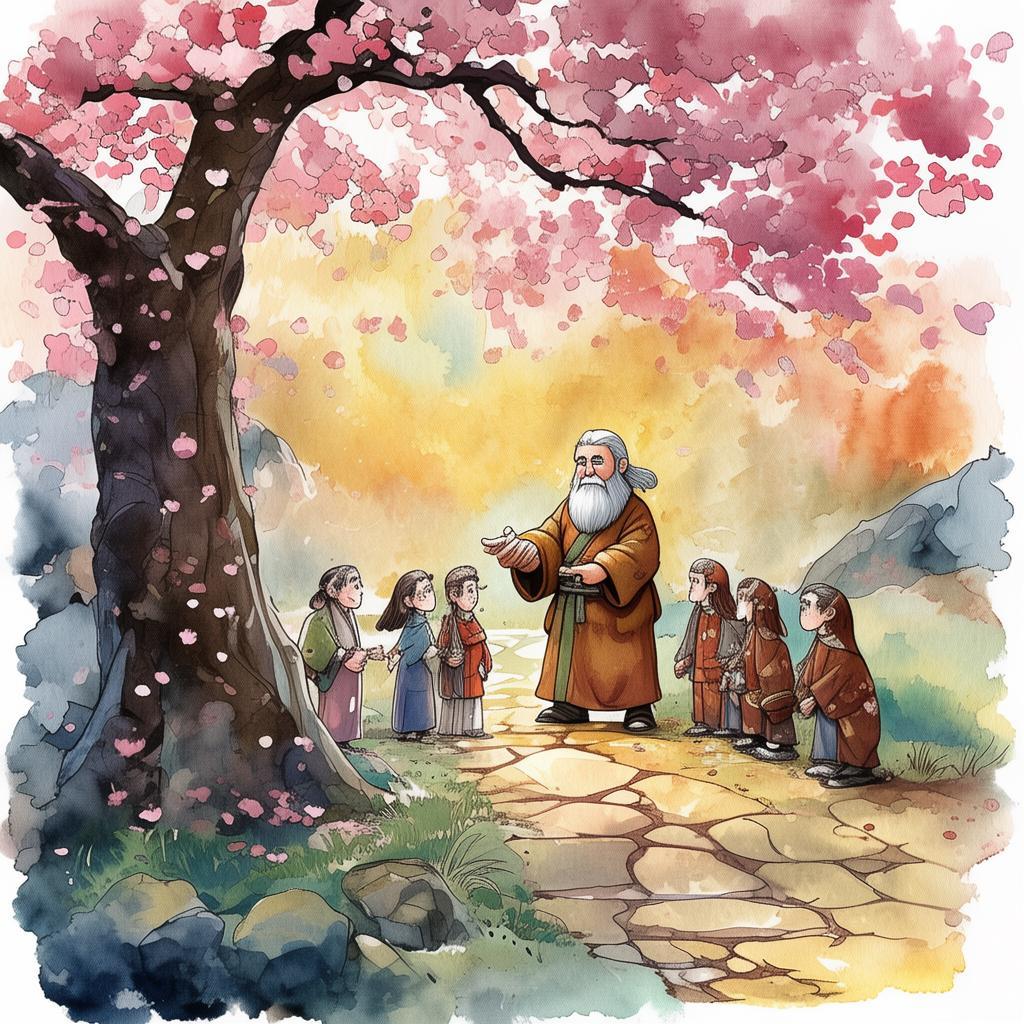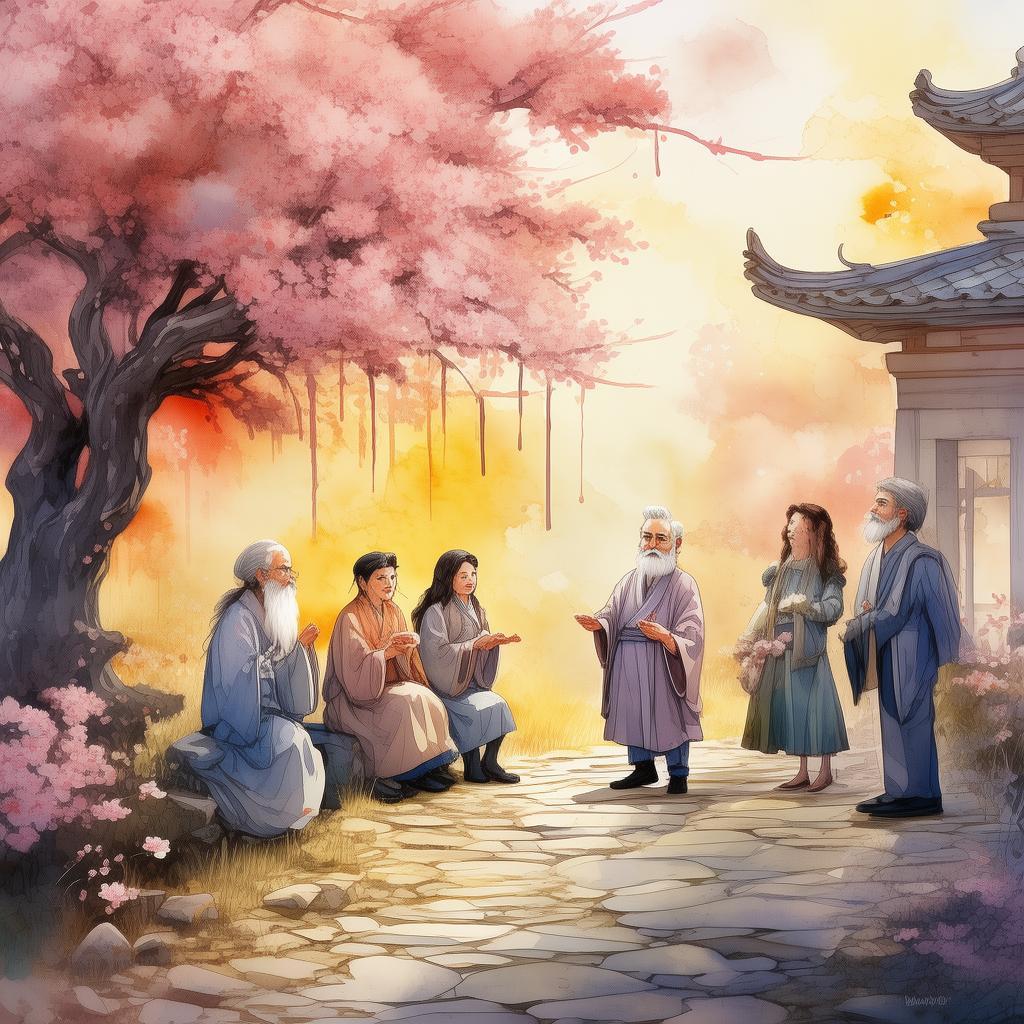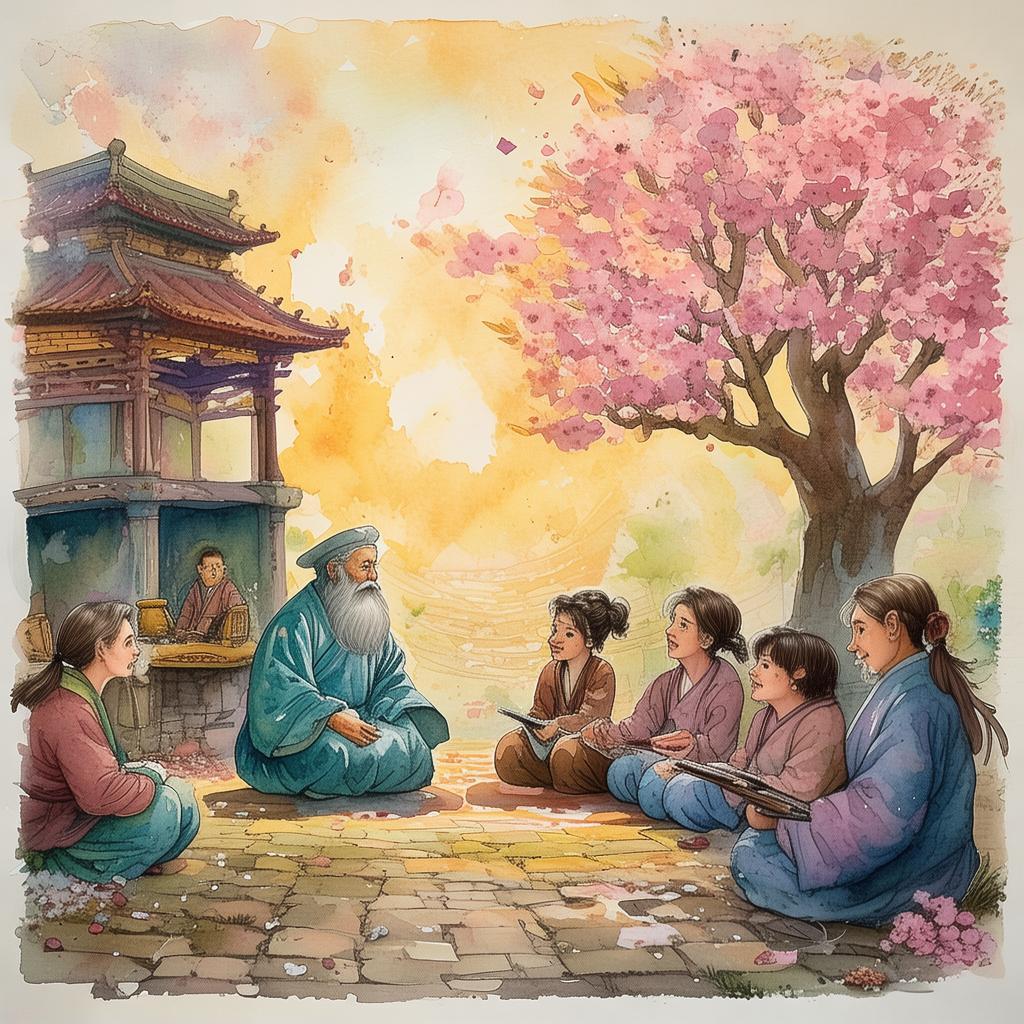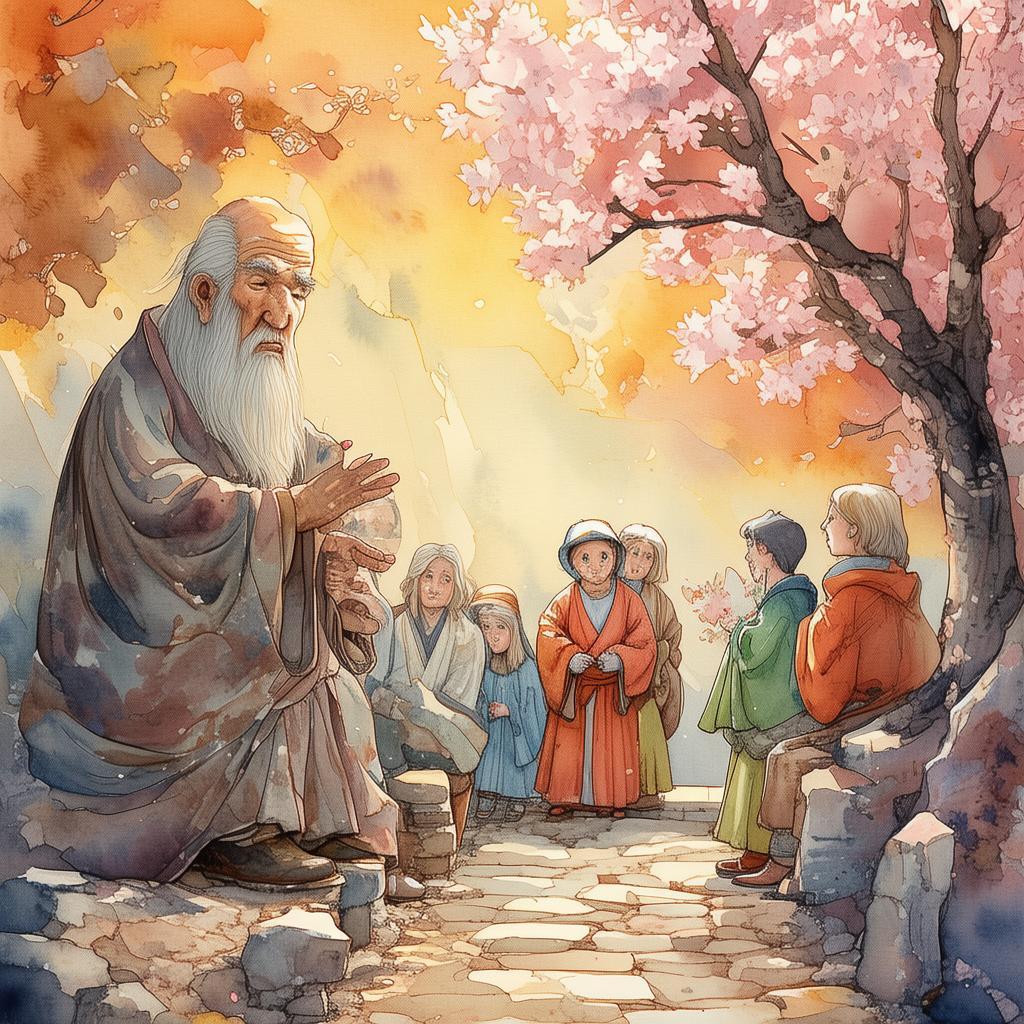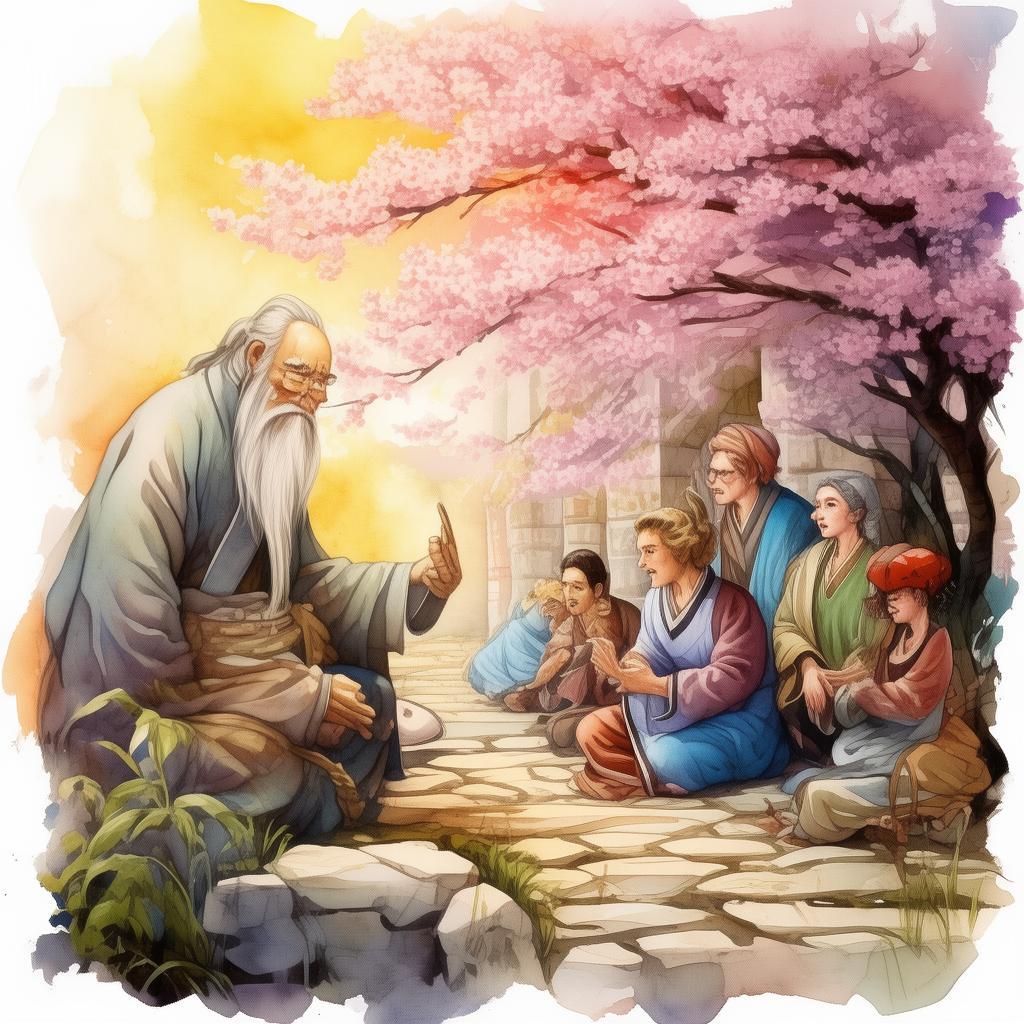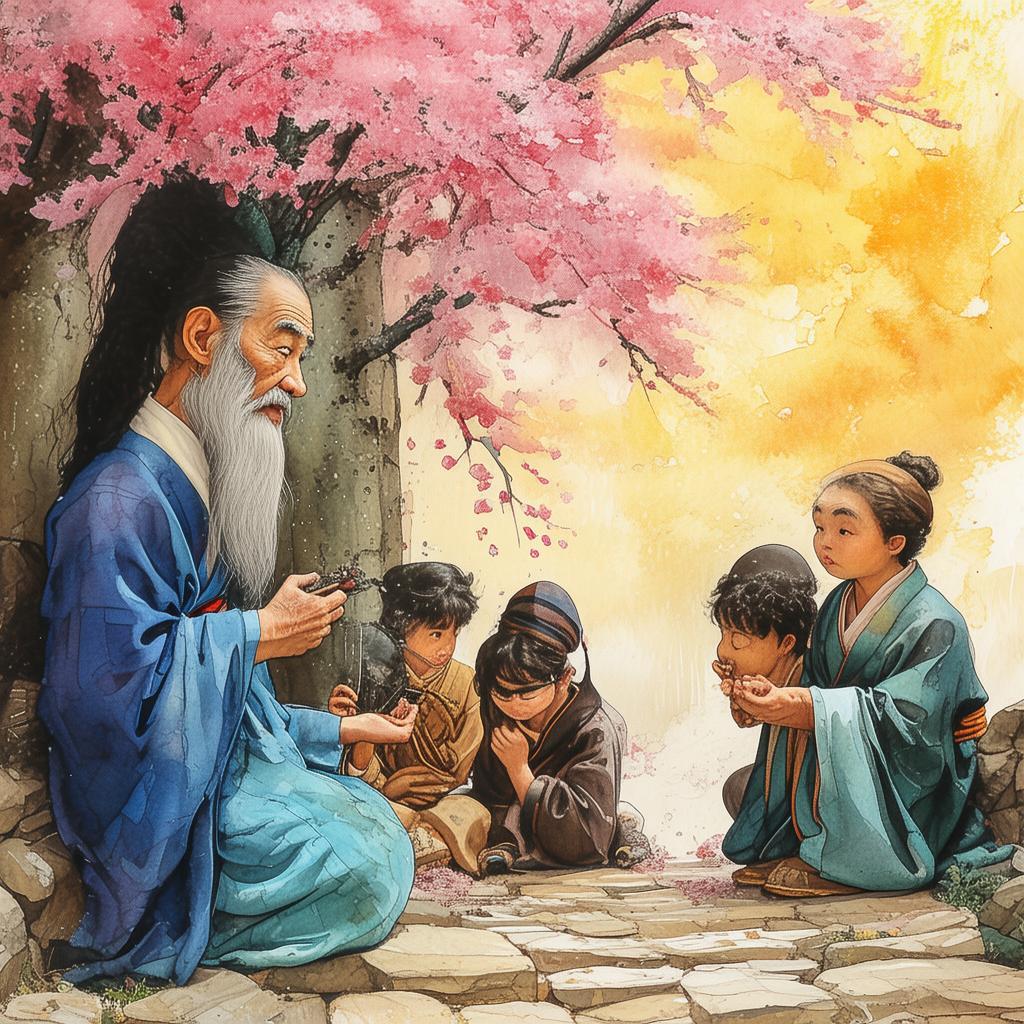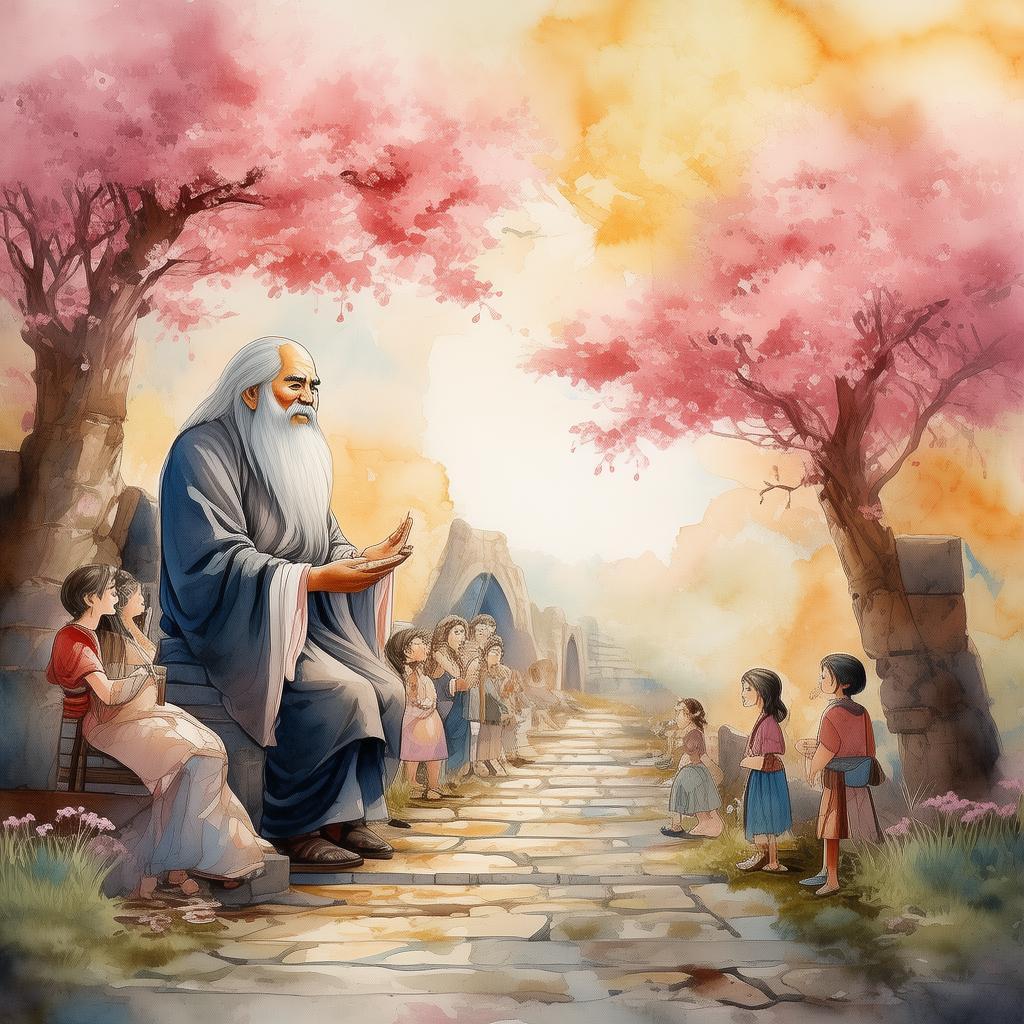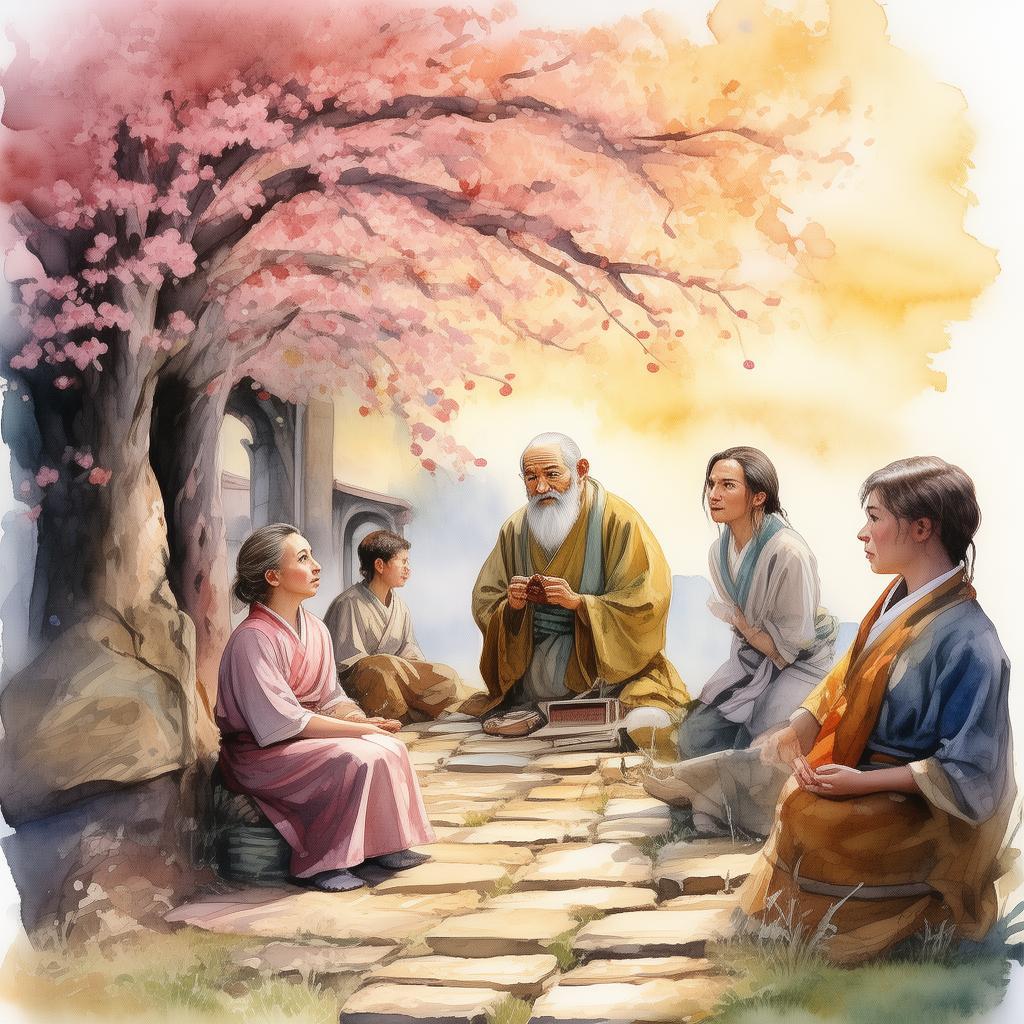The Ironclad Mind: The Riddle of the Vanishing Scholar
In the ancient city of Lishan, nestled between towering mountains and a winding river, there stood a house that was shrouded in mystery. It was the residence of Master Hong, a scholar of unparalleled intellect and a man whose name was whispered with both awe and fear. Master Hong was known throughout the land for his vast knowledge and his ability to solve the most intricate riddles. Yet, there was a dark side to his reputation. It was said that he had once been a torturer, a man who used the pain of others to understand the limits of human endurance.
One day, a man named Liang, a young and ambitious scholar, arrived at Master Hong's doorstep. He had heard tales of the master's brilliance and sought to test his own wits against the greatest mind in the land. Master Hong, intrigued by Liang's audacity, agreed to the challenge.
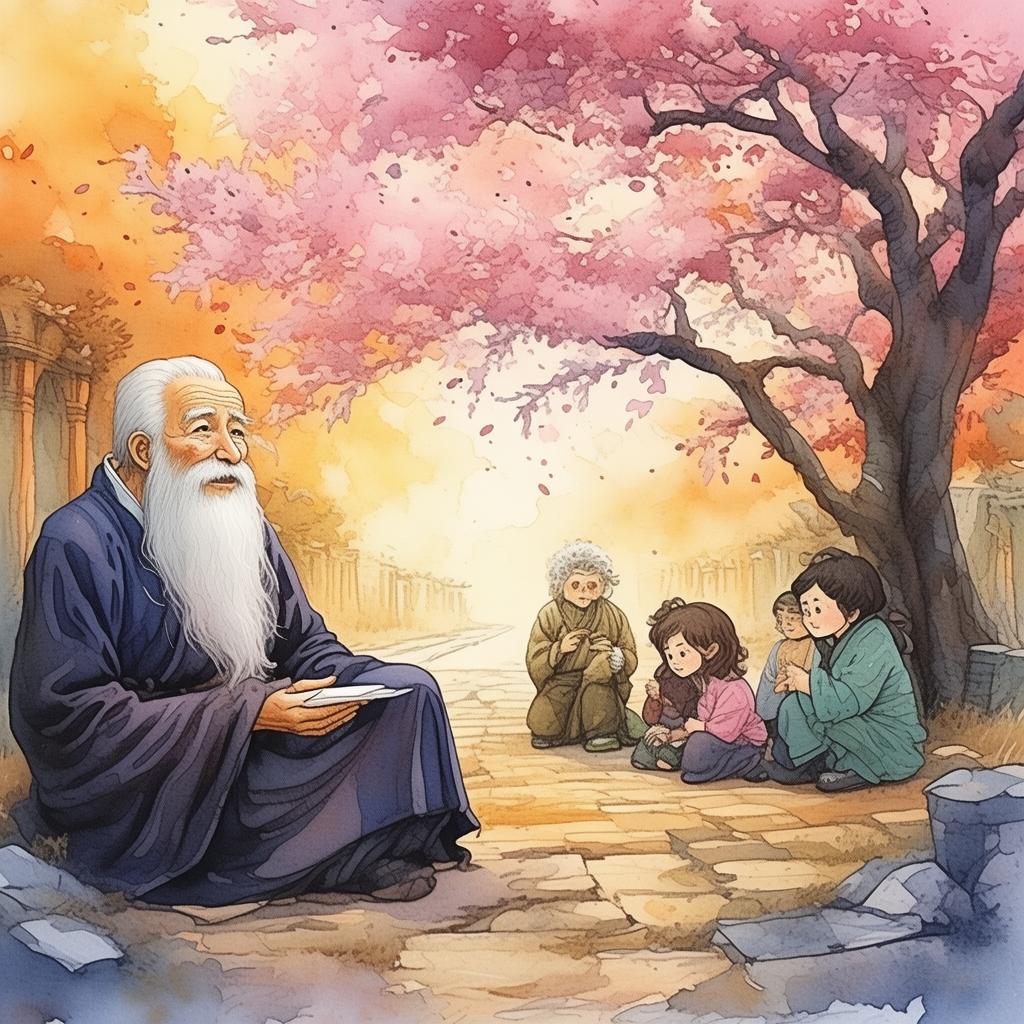
The master presented Liang with a riddle that had stumped many a brilliant mind before him. "In a room filled with ironclad doors, each with a lock that can only be opened by the key to the door opposite, how can you open all the doors?" Liang pondered the riddle for hours, but to no avail. The master, however, watched with a knowing smile.
As the sun began to set, the master spoke, "You have not solved the riddle, but you have answered it in your actions. You have opened the door to wisdom, and now you must face the true test."
Liang was taken to a room filled with ironclad doors, each locked and inscribed with cryptic symbols. He was informed that he would be subjected to a series of tortures if he could not open all the doors within an hour. The tortures were designed to test his resolve, his intelligence, and his capacity for suffering.
The first torture was a simple question: "What is the sound of one hand clapping?" Liang, undeterred, answered, "The sound of one hand clapping is the sound of silence." The master nodded, satisfied with the answer.
The second torture was more severe. Liang was forced to listen to a recording of his own screams while being tied to a chair. The pain was excruciating, but Liang's resolve remained unbroken. "The sound of my screams is the sound of my resolve," he declared.
The third torture was a riddle: "What is it that has keys but can't open locks, has a door but can't close it, and has a lock but can't be locked?" Liang, without hesitation, replied, "A piano. It has keys, a door, and a lock, but it can't open locks or close doors, and it can't be locked."
The master, impressed by Liang's resilience and intellect, revealed the truth behind the riddle. The ironclad doors were symbols of the constraints placed upon the mind by fear, doubt, and ignorance. By overcoming the tortures, Liang had proven that his mind was unbreakable, and he had unlocked the true meaning of wisdom.
As the final door was opened, Liang found a scroll within. It was a letter from the master himself, detailing the history of the riddles and the true purpose of the tortures. The master had once been a torturer, but he had found that the true test of a man's character was not in his ability to cause pain, but in his ability to endure it.
Liang left Master Hong's house with a newfound understanding of wisdom and a respect for the man who had once been his torturer. He returned to his village, where he shared his experiences and the lessons he had learned. From that day on, he was known not only for his intellect but for his unbreakable spirit and the wisdom he had gained through suffering.
The Ironclad Mind: The Riddle of the Vanishing Scholar became a tale that was told for generations, a story of a man who had faced the limits of human endurance and emerged not only unscathed but wiser for the experience. It was a story that reminded all who heard it that the true strength of the mind lay not in its power to overcome others, but in its ability to overcome itself.
✨ Original Statement ✨
All articles published on this website (including but not limited to text, images, videos, and other content) are original or authorized for reposting and are protected by relevant laws. Without the explicit written permission of this website, no individual or organization may copy, modify, repost, or use the content for commercial purposes.
If you need to quote or cooperate, please contact this site for authorization. We reserve the right to pursue legal responsibility for any unauthorized use.
Hereby declared.
